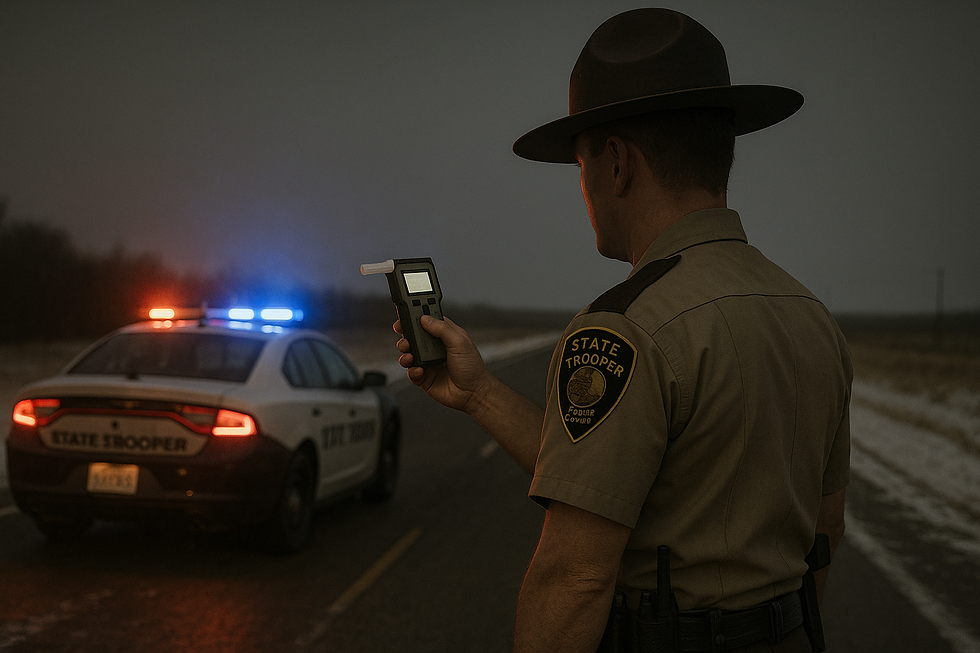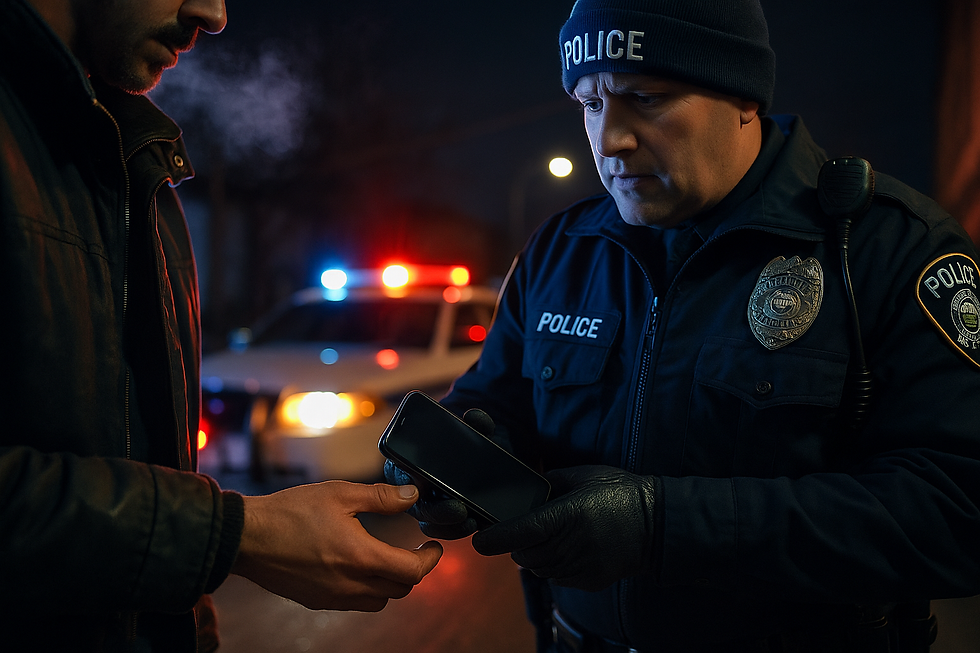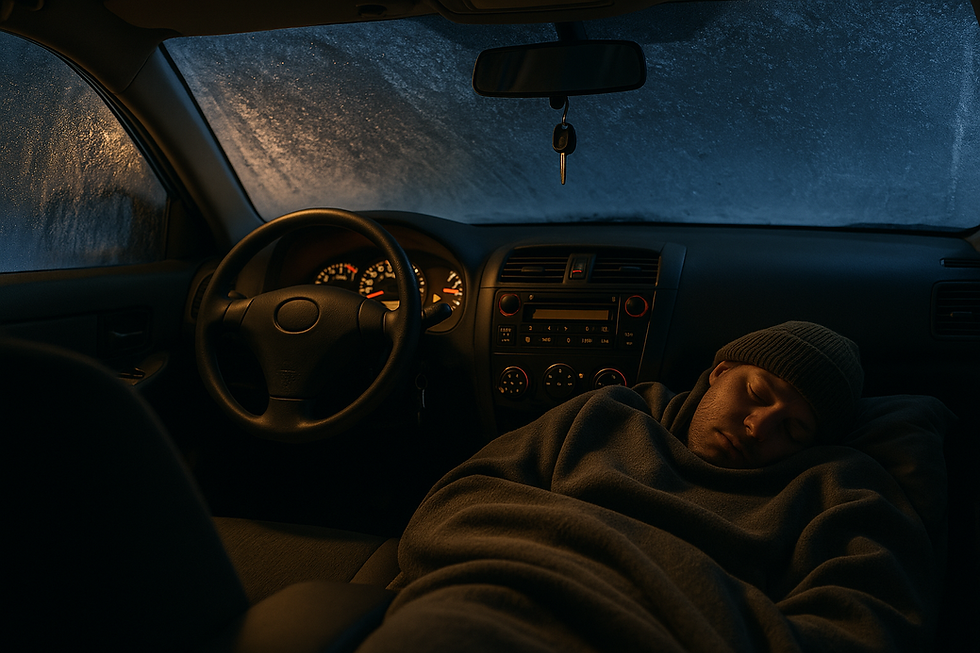What Happens If I Refuse a Breath or Blood Test in North Dakota?
- Heartland

- Aug 13, 2025
- 4 min read

If you’re stopped for DUI in North Dakota, refusing a breath or blood test might feel like a way to protect yourself.But under North Dakota’s implied consent law, saying "no" can result in severe penalties—sometimes worse than taking the test.
In this guide, you’ll learn:
What the implied consent law means for ND drivers
Penalties for refusing a test
How refusal impacts your DUI case
Defense strategies if you’ve been charged
Understanding North Dakota’s Implied Consent Law
Under N.D.C.C. § 39-20-01, all drivers automatically agree to chemical testing (breath, blood, or urine) if arrested for DUI.This is known as implied consent—and refusing a lawful test is a separate criminal offense.
Process:
Legal Stop – Officer must have reasonable grounds for DUI suspicion.
Arrest – You are taken into custody.
Test Request – Officer asks you to take a breath or blood test.
Refusal – Saying “no” triggers penalties under state law.
Penalties for Refusing a Breath or Blood Test in North Dakota
Refusal leads to two main types of consequences:
1. License Revocation
First Refusal (in 7 years): 180-day revocation (no work permit)
Second Refusal/DUI: 2-year revocation
Third Refusal/DUI: 3-year revocation
The North Dakota DOT imposes these penalties regardless of the outcome in criminal court.
2. Criminal Penalties
Refusal is prosecuted as a Class B misdemeanor:
First Offense: Up to 30 days in jail and $1,500 fine
Repeat Offenses: Higher fines, longer jail time
3. Evidence in DUI Case

A prosecutor can argue refusal shows you knew you were intoxicated, adding weight to their case.
Breath Test vs. Preliminary Roadside Test
It’s important to know the difference:
Preliminary Breath Test (PBT): Given roadside before arrest. Refusal is not a separate crime but can lead to arrest.
Evidentiary Test: Given after arrest at a station or hospital. Refusal here triggers implied consent penalties.
Example Case
You’re pulled over leaving a Minot bar. Officer smells alcohol, asks for a breath test. You refuse.Result:
Immediate arrest for DUI + refusal
180-day license loss (no work permit)
Criminal charge for refusal on top of DUI charge
Even if your BAC was legal, refusal alone triggers penalties.
Defense Strategies for DUI Refusal
An experienced DUI attorney may challenge:
The legality of the traffic stop
Whether the officer followed proper test request procedures
Lack of a required warrant for blood draw
Medical conditions affecting your ability to provide a breath sample
ND DUI Refusal Basics
Q: What happens if I refuse a breath test in North Dakota?
A: You face immediate arrest, 180 days to 3 years of license loss, and a Class B misdemeanor charge, plus possible DUI charges.
Q: Can I get a work permit if I refuse?
A: No. North Dakota law does not allow temporary work permits for test refusals.
Q: Does refusal stop a DUI charge?
A: No. You can still be charged based on other evidence like driving behavior and field sobriety tests.

Breath vs. Blood Test Rules
Q: Is refusing a blood test different from refusing a breath test in ND?
A: Both are treated the same under implied consent laws—refusal triggers license loss and criminal charges.
Q: Can police take my blood without permission?
A: Yes, but only with a valid search warrant or in limited emergency situations.
Q: What’s the difference between a roadside breath test and the official test?
A: Roadside tests (PBTs) are preliminary; refusal isn’t a crime. Refusal of the official post-arrest test is a criminal offense.
Legal Defense & Next Steps
Q: How soon should I contact a DUI lawyer after refusing a test?
A: Immediately—there are short deadlines to challenge license loss, often within 10 days.
Q: Can a refusal charge be dismissed?
A: Yes, in some cases—if the stop was illegal, procedures weren’t followed, or a warrant wasn’t obtained when required.
Q: Where are refusal cases heard in ND?
A: In district courts across the state, including Bismarck, Fargo, Minot, and Williston.
Bottom Line
Refusing a breath or blood test in North Dakota almost always makes your legal situation harder. You could lose your license for months or years, face criminal penalties, and still be convicted of DUI.
If you’ve been charged with refusal, act fast to protect your rights and driving privileges.
Call Heartland Law Office at 701-JUSTICE or contact us online for a confidential consultation. We defend DUI and refusal cases statewide, including Bismarck, Minot, Williston, and Dickinson.
Internal Resources
DUI Defense in North Dakota – Learn about our approach to defending DUI charges statewide.
Criminal Defense Attorney in North Dakota – Protect your rights when facing any criminal charge.
What to Expect After a DUI Arrest in North Dakota – A step-by-step guide to the DUI process.
External Resources
North Dakota Century Code § 39-20-01 – Implied Consent Law – Full statutory text on chemical testing for DUI.
North Dakota Department of Transportation – Alcohol & Drug Offenses – State DOT overview of DUI and refusal penalties.
North Dakota Supreme Court Opinions – Searchable database of state DUI and implied consent cases.
This article is for informational purposes only and does not constitute legal advice. Always consult with a licensed attorney regarding your specific situation.





